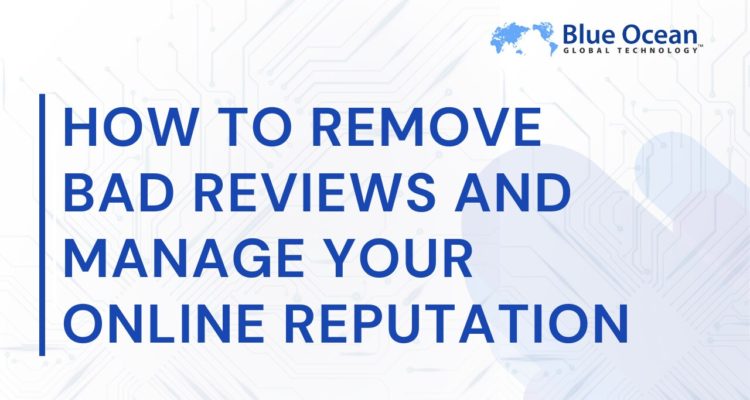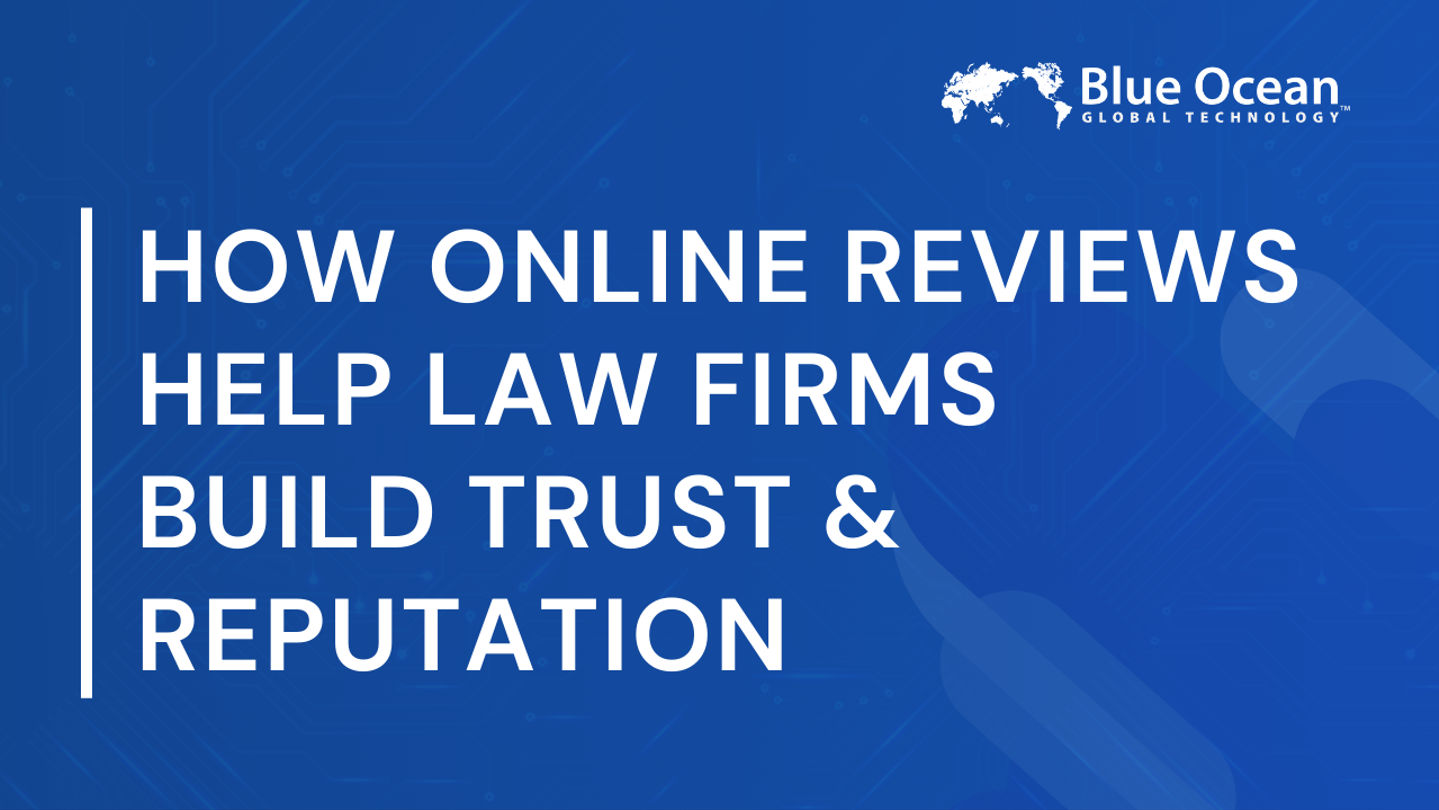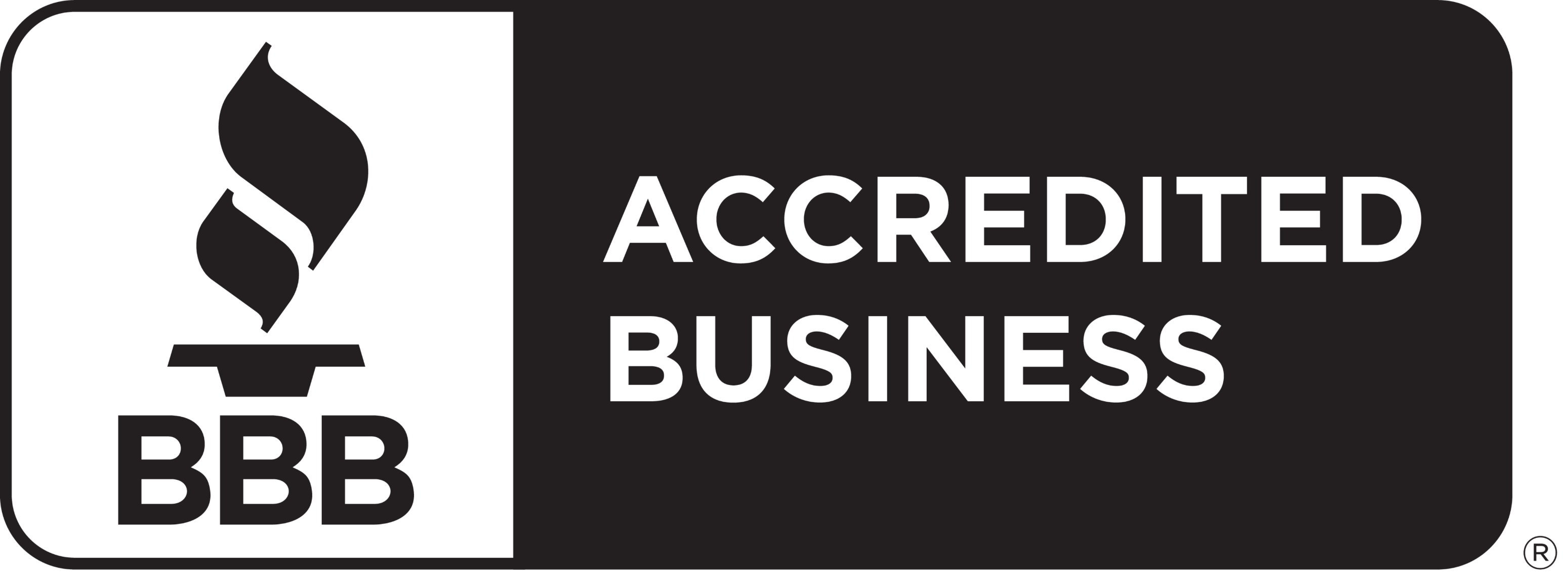Overview:
- Online reviews play a vital role in building trust and credibility for law firms.
- Positive feedback will help in managing your online reputation and attracting more clients.
- Negative reviews provide an opportunity to find the area of weakness and focus improvement.
- Regular review management increases visibility on key platforms.
- Ethical review practices help maintain trust with clients and ensure compliance with legal standards.
How Online Reviews Shape a Law Firm’s Reputation
Anyone who has to seek legal counsel quickly learns it is no simple task. Legal professionals must deal with their clients’ most intimate details; a relationship that requires the highest level of trust. As a result, law firms must cultivate and maintain the best possible image. This image should invite trust and credibility from both clients and peers.
The digital age has changed how businesses build their reputations across all industries. Online review sites specific to different industries now hold vast influence. Law firms must develop and hold trust. As a result, understanding and managing online reviews must be a key element in their marketing strategy.

Building Trust Through Online Reviews
Statistics show the vast majority of consumers do online research before making even smaller purchases. They are even more likely to do so when choosing professionals, from accountants to financial advisers and legal counsel. When choosing a law firm, prospective clients put trust first. They frequently look for reassurance that the firm will represent them capably and ethically.
Online reviews give consumers access to each other’s experiences. This helps them make more informed choices, with positive evaluations influencing more business for a firm.
Positive internet reviews also attest to a firm’s and its lawyers’ knowledge and dependability. Conversely, negative online reviews point out all the shortcomings of the business and may scare new businesses away. Law firms may utilize negative feedback to pinpoint areas of weakness and make corrections. This helps them to enhance their services and better serve their clients. Moreover, firms can respond to online reviews to clear up complaints—publicly showing potential clients that they care and are accountable.
Unprofessional conduct in a law firm’s history can easily be uncovered online both in reviews and in online searches. Such cases require stronger action, such as mitigating negative content in search results. This often requires expert help from online reputation management consultants.

Understanding Client Decision-Making
Legal businesses should make managing their online reputation a priority. As online reviews play a major role in potential clients’ decision-making process. A study found that 98 percent of the participants research online reviews of any lawyer before hiring them.
Search engine optimization (SEO) relies heavily on online reviews. Businesses with a large number of favorable reviews typically appear higher in search results, making them more visible to potential clients. In competitive legal markets where several firms may be competing locally for clients’ attention, this exposure is crucial. When seeking a lawyer, people are more likely to conduct a Google search than look on Yelp. A higher ranking on Google SERPs means greater exposure, more traffic, and an opportunity to convert a diverse clientele.
Another problem to deal with is the power of negative feedback over positive. A large collection of positive reviews can be turned sour by only a few negative ones. This dynamic underscores how crucial it is to actively manage and respond to customer feedback.
Managing and Responding to Online Reviews
Encouraging Clients to Leave Reviews
Actively encouraging satisfied clients to leave reviews is a successful tactic that can be used by law firms—and numerous other businesses. Asking customers for comments during follow-up emails, thank-you messages, or following successful cases is a simple way to do this. Giving customers precise instructions on how and where to submit reviews is an essential part of ensuring ease in the process.

Monitoring Online Reviews
Monitoring online reviews plays a significant role in safeguarding a company’s image. An effective strategy is to create Google Alerts for the company’s name. This helps important staff members to stay informed about any mentions online. Firms should update and manage their profiles on essential platforms. This includes Google My Business, Yelp, Avvo, FindLaw, and the Better Business Bureau. These platforms not only act as outlets for customer feedback but also boost visibility in online searches. Legal review platforms, like Avvo and Lawyers.com, offer a chance to highlight your expertise, practice areas, and accomplishments. Profiles on these platforms should be kept accurate, complete, and up to date.
Responding to Reviews
Responding to reviews is crucial regardless of whether they’re positive or negative. Showing gratitude for feedback indicates an appreciation for the customers’ input. Responding empathetically to negative reviews demonstrates a dedication to customer satisfaction and improvement efforts with the company’s services or products. For instance, a thoughtful response might say, “Thank you for your feedback. We’re sorry your experience did not meet your expectations.” “Please contact us directly so we can address your concerns.”

Addressing Harmful Reviews
When dealing with harmful online reviews, it’s crucial to stay alert and take steps to address them effectively. It is important to verify the accuracy of reviews by comparing them with sources. Additionally, utilizing the reporting features provided by platforms like Google and Yelp. For instance, Google Reviews enables businesses to flag comments using the “Flag as inappropriate” option. Yelp, on the other hand, offers a “Report Review” function for addressing similar issues. To enhance their image, companies can monitor review patterns to spot feedback themes. Sharing these insights with the team can help refine client service and improve overall satisfaction.
Reputation Management Tools
One way to make it easier to keep track of and respond to reviews is by using tools like Birdeye and ReviewTrackers for reputation management. Alternatively Podium can be used for streamlining the process. Social media listening tools like Hootsuite or Sprout Social can also help track mentions and client feedback across platforms.
Take Control of Your Online Presence
Make your firm the first choice for prospective clients. Let us help you manage and elevate your online reviews effectively.
Ethical Considerations for Law Firms and Online Reviews
Legal professionals are required to follow rules set out by the American Bar Association (ABA) or other jurisdictional authorities. These rules pertain to client communication and advertising. These rules place a strong emphasis on honesty in all marketing initiatives. Law firms should avoid deceiving prospective clients. They must also make sure their marketing initiatives are in line with professional ethics by following these guidelines.
Likewise, businesses should refrain from using coercive methods when requesting feedback and instead provide clients the freedom to voice their thoughts. It is critical for firms to adhere to ethical norms regarding internet reviews. This helps to preserve their integrity, build client confidence, and foster a reputation for abiding by ABA principles.
Conclusion
In the highly competitive legal market, positive customer feedback can augment your digital image. It can also give you the required edge to lead the industry. Online reputation management must hence become part of a law firm’s marketing and client relations plan. A solid ORM plan can boost visibility and place the firm as a reliable and dedicated service to clients and stakeholders. This serves both as risk prevention and mitigation—concepts that lawyers understand well.
Frequently Asked Questions
1. Why are online reviews important for law firms?
Online reviews are essential to law firms since they build credibility and trust among potential clients. Positive reviews make your reputation even better. It increases your visibility and the number of people who visit your firm, whereas negative reviews serve as opportunities to improve. This is a significant factor in making your online presence stronger and capable of attracting more business.
2. How can my law firm encourage clients to leave reviews?
You encourage clients to provide reviews by simplifying the review process. Right after a client has successfully finalized a case or interaction, thank them for their business and trust in your firm. Inquire about their review through follow-up emails, messages, or by making a specific request for their feedback. Then, give clients clear instructions of how and where to submit those reviews. Including platforms like Google, Avvo, Yelp, etc., so they may easily share an experience.
3. How should a law firm handle negative online reviews?
Respond professionally and empathetically to the negative reviews is key to maintaining your firm’s reputation. Acknowledge the consumer’s grievance, show regret to their experience, and offer to address the issue offline. A well-thought-out, honest response demonstrates to potential consumers that your law firm is willing to move forward and improve on client satisfaction.
Strengthen Your Firm’s Online Presence
Your reputation is your most valuable asset. Let your law firm be one that has a solid online presence built on trust and great reviews. Start enhancing your digital presence today.












